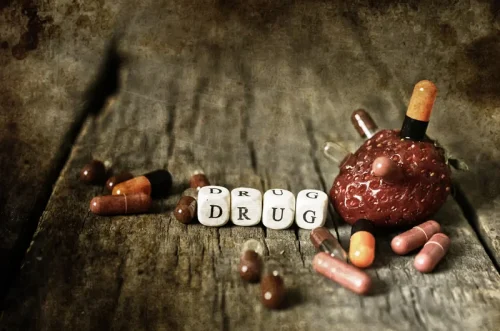
And while alcohol purchasing seemed to slow down a bit in 2023, sales of “ready-to-drink” cocktails continued to increase — more than doubling since 2019, up to $10.7 billion. Alcohol sales per capita went up more from 2019 to 2021 than in any two-year period since 1969, according to estimates from the National Institute on Alcohol Abuse and Alcoholism. Deaths from excessive alcohol use are also rising, as are deaths where the underlying cause of death was alcohol-related.
Why Some People Develop Alcohol Intolerance
If you’re taking any medication, be sure to read the package label and insert carefully—and/or talk to your doctor—to see if you should abstain from drinking alcohol altogether. The symptoms of alcohol intolerance are unpleasant but rarely dangerous and will eventually go away on their own. However, if asthma symptoms occur with alcohol intolerance, it is good to see your doctor and ensure you manage your asthma correctly.
Alcohol Intolerance vs. Alcohol Allergy
- Some people may become worried about a more significant medical reason for not being able to drink like they used to, while others may feel social or career-related pressures to drink.
- Sulfites, tyramines, and histamines are substances that are naturally found in many forms of alcohol.
- The color change will generally be quite noticeable and affect your entire face.
A person may experience sickness after drinking alcohol due to an intolerance or sensitivity to an ingredient. It may also be a sign of a hangover or result of a lack of water or sleep. If you have alcohol intolerance, it’s wise to cut back on alcohol or quit drinking. Drinking with alcohol intolerance causes uncomfortable symptoms, and it also puts you at greater risk for a range of potentially fatal diseases.
Alcohol Intolerance Vs. Alcohol Allergy

Then you can start again, perhaps trying just one of your go-to drinks at a time. If the reactions return with specific drinks, then you know which ones cause what causes alcohol intolerance problems for you. If you have alcohol intolerance and are not going to stop drinking, the less alcohol you use, the better your alcohol intolerance will be.
When to see a doctor
This article is for informational purposes only and is not meant to offer medical advice. If you’ve been Googling whether you might be intolerant to alcohol, it’s likely you aren’t just suffering from a bad hangover. Prior to developing COVID-19, she could comfortably consume alcohol. Long COVID refers to persistent symptoms that occur more than three weeks after the initial COVID-19 infection. Additionally, people may seek support from family and friends or advice from a medical professional if they require longer-term support. Research shows that older females are more sensitive than males to the effects of alcohol.
- Distilling a drink usually removes any naturally occurring yeast or yeast by-products from the liquid.
- “Ethanol as a cause of hypersensitivit[…]ic beverages.” Clinical & Experimental Allergy, August 2002.
- When drinking is combined with tobacco use, risks go up across the board.
- If you’re allergic to another ingredient contained in certain alcoholic products, switching to a different drink might be an option.
- If trace amounts of any of the above compounds are consumed in a drink by someone with a sensitivity, they will develop symptoms.
- It is important to seek specialist advice if your suspect some sort of alcohol intolerance, as alcohol intolerance and alcohol allergy are commonly confused and misdiagnosed.
Can you become tolerant to alcohol over time?
An inherited metabolic disorder means you got this condition from your parents — they each passed down a mutated (changed) gene that resulted in this disorder. Even if your parents don’t have the condition, they can pass it to you. Knowing how your body responds to alcohol, especially if you have a genetic predisposition, is crucial for making informed choices.
The most common cause of alcohol intolerance is inheriting a gene that affects how alcohol is broken down. This is most common in people of Asian descent but can be present in anyone. A high tolerance can be a symptom of an advanced alcohol use disorder, which can lead to many health-related and social implications and should be addressed immediately. With a serious illness, it’s better to abstain from alcohol to avoid further taxing the body. Doing so will also give it the best chance of fighting the illness effectively. Some people may find that their alcohol tolerance becomes higher with time.
- If in doubt, ask your allergy specialist for advice about the types of alcoholic beverages you can or cannot drink.
- Although alcohol intolerance usually isn’t a serious issue as long as you don’t drink alcohol, you might want to discuss it with your doctor at your next appointment.
- It is unclear if distilled alcohol made from corn is safe for people with corn allergies.
- If you have alcohol intolerance, your digestive system doesn’t process alcohol properly.
This is why even a small amount of alcohol impacts our judgment and ability to drive, while a moderate amount can impair our ability to form memories. Some evidence suggests that post-COVID-19 fatigue syndrome may share characteristics with ME/CFS, a condition where approximately 4 out of 5 people exhibit alcohol intolerance. Read beverage labels to see whether they contain ingredients or additives you know cause a reaction, such as sulfites or certain grains. This involves limiting consumption to two drinks or fewer per day for males or one drink or fewer per day for females. Alcohol intolerance occurs when the body does not have the correct enzymes to break down the toxins in alcohol.

What are symptoms of alcohol intolerance?
Having a mild intolerance to alcohol or something else in alcoholic beverages might not require a trip to a doctor. Simply avoid alcohol, limit how much you drink or avoid certain types of alcoholic beverages. People with the ALDH2 deficiency are at higher risk for certain types of cancer, including liver cancer.9 Because alcohol https://ecosoberhouse.com/article/how-long-do-amphetamines-stay-in-your-system/ is a carcinogen, drinking already increases cancer risk. People with alcohol intolerance may also experience nasal congestion after drinking alcohol. Next to flushing, a stuffy nose is the most commonly reported symptom of alcohol intolerance. Your nose may run or feel congested, and some people also sneeze after drinking.
